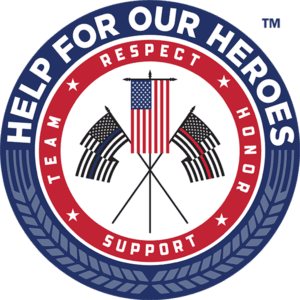 Serving in any branch of the military creates unique stressors that members of the general public rarely experience. Even comparatively to the rest of the military, though, members of the Navy face extreme difficulties. Repeat ship deployments can take away a sailor’s social support system — even when they’re stationed with their family. This partially explains rates of addiction in the Navy.
Serving in any branch of the military creates unique stressors that members of the general public rarely experience. Even comparatively to the rest of the military, though, members of the Navy face extreme difficulties. Repeat ship deployments can take away a sailor’s social support system — even when they’re stationed with their family. This partially explains rates of addiction in the Navy.
Transformations Mending Fences understands these stressors are incredibly difficult. And while Navy personnel may eventually leave the service, the effects of those difficulties often linger. If you have a loved one coping with addiction after naval service, the following guide can help you help them. Take these techniques to heart and contact us today to learn how we can help.
One of the most important steps for helping a Navy service member cope with addiction is knowing what to expect. It’s unlikely that you’re going to get zero resistance when trying to help. Almost 70% of Navy personnel feel that the military culture is supportive of drinking. This means someone with alcohol use disorder is likely to argue they don’t have a problem.
The Navy also recently experienced the largest increase in accidents among all military branches. This often leads to injuries that require pain medication to deal with. If you approach your loved one about misuse of these medications, they will probably also justify their use. The point is this: Don’t expect it to be easy. Nothing worth achieving ever is.
When you approach a current or former member of the Navy regarding addiction, it’s important that you don’t go on the attack. Their behavior may have reached an inappropriate level, and they may have destroyed valuable relationships in the process. When you’re dealing with your loved one, though, it’s vital that you remember that addiction is a disease.
There’s little doubt that you could find reasons to blame the person you’re speaking with. However, considering the entire situation will get you further. The fact is that addiction often comes from a need to cope with stress, and in the Navy, there are plenty of stressors to go around. It may not be easy to understand what your loved one is going through, but you should at least recognize it.
Addiction is more than just a disease. Addiction is a family disease. Research shows that drug and alcohol abuse among Navy dependents has increased in recent years, but that’s not the only issue that exists. If you’re in any type of relationship with someone dealing with addiction, you’ve likely experienced a level of stress that most people never encounter.
Before you can help anyone cope with addiction, you need to cope with your own issues first. Consider attending a support group meeting that caters to the loved ones of addicts. Nar-Anon and Al-Anon are both great organizations that can help you deal with your problems and also provide insight on how to help your Navy service member cope.
Thanks to deployments on the open ocean, Navy personnel deal with levels of isolation far worse than most individuals. Loneliness is often a contributing factor to mental illness and addiction, so when your loved one reaches out to you, it’s beneficial for you to be there for them. Be ready to listen if they’re going through difficulties and want to speak.
When doing this, though, it’s important to not become an enabler. It’s okay to lend a shoulder to cry on, drive your loved one to appointments, and take other steps simply to support them. It’s not okay to help them avoid the consequences of their actions. Studies show that doing this reduces the likelihood that someone will seek treatment.
When you speak with a Navy member with addiction issues, it’s important that you’re open and honest. This doesn’t mean you should attack or criticize them, but you can let them know how their disease affects you. You may need to make some changes as well, but this all starts with a straightforward conversation about what your loved one is facing.
If you’re worried they might overdose — which, considering the VA gave out 200,000 anti-overdose treatments in just five years, is not unfounded — let them know. If you’re scared that they may become part of the increasing rates of military suicides, express your concerns for their safety. If you’re honest about your fears without being threatening, your loved one is more likely to open up to the possibility of treatment.
 Offer an Alternative to Addiction
Offer an Alternative to AddictionNo matter how empathetic you are or how convinced your loved one becomes of their own problem, it’s unlikely that they’ll get better through sheer force of will. Basic training and years of service may have toughened them up, but a person is battling their own body when addiction is involved. Let them know places like Transformations Mending Fences can help.
Here are just a few of the offerings we provide for current and former Navy members facing addiction:
You’ll notice that many of these treatments focus on mental health issues rather than addiction. This is because drug and alcohol abuse do not exist in a vacuum. If simultaneous treatment of the underlying causes of addiction or co-occurring disorders doesn’t occur, it’s unlikely that any treatment plan will work. Make sure your Navy loved one knows help is available, but also make sure they get the best support available.
If your loved one served in the Navy, their training makes them one of the most formidable forces in the world. Unfortunately, addiction is an enemy unlike any other. Overdose deaths are not uncommon in service members and veterans, and addiction increases the risk of suicide within a profession that already sees elevated rates. Don’t wait until things escalate. Reach out for help now.
Transformations Mending Fences offers treatment services to people from all backgrounds. Since we understand the unique stressors faced by members of the Navy, though, we’ve created programs catering to their specific needs. This is why many of our clients have military and first responder backgrounds.
Contact us today to learn how we can help your loved one overcome addiction.
Sources
University of Michigan
Addictive Behaviors Reports
https://www.sciencedirect.com/science/article/pii/S2352853216300530?via%3Dihub
Military.com
USNI News